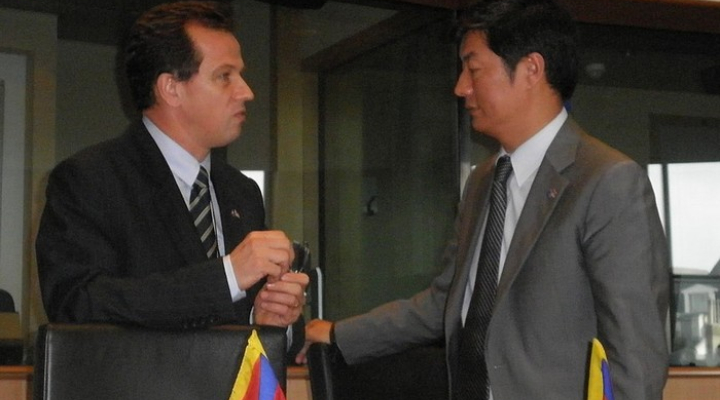Tibet's autonomy aspirations discussed in the EP
The Tibet Intergroup and the South-Asian Delegation of the European Parliament co-organized a conference about the subject of the Tibetan autonomy on the 29th of November in the European Parliament.
Host of the evening, German EPP member Thomas Mann opened the debates and said that it seems like international institutions are indifferent to Tibet and reject any debate on the subject. Representative of the Parliamentary Assembly of OSCE, Italian MP Matteo Meccaci stressed the importance of the responsibility of politicians and urged measures that point towards a positive solution of the issue.
Dr. Lobsang Sangay, Prime Minister of the Tibetan Central Government in exile, also known as the Kalon Tripa, declared that Chinese authorities consider his function and appointment to be illegal, even though he has been elected in a democratic way. The politician, who has studied at Harvard, said that many people ask him why did he left the USA and returned to Tibet. His answer remains the same: to fulfill the vision of his predecessors, to create a secular state based on the rule of law and to prove to the Tibetan people, that this is possible.
Sangay stated that his people are against all forms of violence, this is why the series of suicides are a signal to the world: they must act, the Tibetan people cannot be ignored any more. Tibetans are committed and resilient, this is why he has returned to Tibet. The Tibetan community needs moral support because they too have done much for fundamental human rights, the foundation of the European Union. Tibet can be a catalyst in the moderation process of China, meaning that if they recognize the Tibetan identity and language, there might be a chance to create a democracy based on diversity in China. The Dalai Lama has always been against violence; however Tibetans have no choice but to resort to these means during their protests because the Chinese authorities consider the Tibetan issue to be an internal matter entirely in their jurisdiction. Sangay stated that it is not merely an internal, constitutional or territorial issue because China provides supplementary rights to some regions such as Hong Kong or Macao.
DAHR’s MEP Csaba Sógor assured the Prime Minister of his continued support and said that unfortunately many member states still have an inadequate attitude about national minorities, although the level of discrimination cannot be compared to Tibet.
Representative of the His Holiness the Dalai Lama, Kelsang Gyaltsen concluded that the conference was a sign of the European’s support for the Tibetan people. This can be very inspiring for a community living in dire conditions. Negotiations with China are still being governed by the principle of peaceful agreement and the proof of this being a viable solution is backed by the institutional system of the EU.











